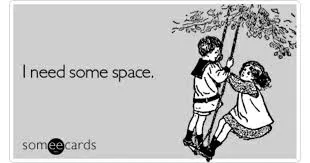
Ohh yhh!, you do; we all do. Whether you’re assembling valuations of an interview candidate, discerning your team during a conference, or meeting a forthcoming in-law for the first time or someone special in your life. We’re always constantly and consciously discerning and making valuations.
In trade, these anecdotic valuations decide hiring decisions, salaries, promotions, and assignments. Practically every decision we make is based upon our firsthand thought. The problem is the conclusions we reach based on our personal observations are often wrong.
Three common glitches with observations, and tips to overcome them.
- It’s about you, not them.

What makes a “good boss?” Why am I asking that? Perhaps because they do things and say things you like while other bosses don’t. How we judge things is in reference to our own experience. If you had a boss that frown at you every day, that’s your bar for a bad leader. If you had a boss that was nice, but a little frazzled, that might be your bar for a bad leader. Instead of comparing people to other people, try comparing someone to an earlier version of themselves. Next time you’re assessing someone, either anecdotallly or formally, test your conclusions against these three factors.
It’s unfair.

There is a huge volume of research on workplace biases. Even the most well-intentioned people are biased. The biases we usually think about are related to race, gender, or quantifiable factors. But there’s a different form of partiality that can be even more insidious: self-affirmation bias. For example, imagine Fred from the product team cut you off in the cafeteria line. You now think Fred is pretty uncouth. In his product training meeting the next day, you’re subconsciously looking for things Fred does that reaffirm your belief that Fred is uncouth. What’s worse is, your intelligence takes it one step further. You’ll tune out anything Fred does that suggests he isn’t uncouth. Fred may not have even realized he stepped in front of you that day in the cafeteria. But now your intelligence is working overtime to prove itself right. It’s easier to create a reality conforming to our current traditions and move on. Awkwardly, that reality is often based on inaccurate assumptions.It’s a snapshot.

When you’re observing someone, it’s a single moment in time. It may have been the worst 24 hours of their life or the best. What we can do is give people the benefit of the doubt. At a particular time, if he or she seems distracted, stressed out, ill at ease, or some other less desirable trait, grant them the space to reset. Try not to exaggerate these single snapshots. Assess people from a variety of points of view, in a number of situations over time.
WHEN SOMEONE ELSE’S CAREER IS AT STAKE, YOU DON’T WANT TO MAKE DECISIONS BASED ON FAULTY ASSUMPTIONS.